How to Know if the Home You’re Buying is Energy Efficient
If you’re in the process of buying a home, it may sometimes feel as though there are a thousand things to consider, from the condition of the roof to the quality of the schools nearby. When looking at homes, many prospective buyers tend to overlook one crucial factor: energy-efficiency. Here in Florida, an inefficient home could cost you thousands over the next few summers.
That’s why it’s important that you work with your realtor, home inspector, and the current owner to get as much information as possible before closing. In this article, we’ll review how you can know if the home you’re purchasing is energy-efficient and why you should schedule an energy assessment.
Start with the cooling and heating systems
When it comes to the property’s air conditioner, heat pump, or furnace, you need to know everything. A home’s HVAC systems are more than just essential here during the summer—they’re also one of the single-largest investments you’ll make in your home. In essence, buying a home with recently installed, high-quality cooling and heating systems can save you thousands.
Here’s what you need to ask the current homeowner or find out through your home inspection:
- Types of systems: Many homes in Florida have heat pumps, which provide both summer cooling and winter heating. They’re a perfect, versatile fit for our mild winters. Heat pumps are an energy-efficient heating option: if the home you’re looking at has a heat pump, that’s a good sign. In a vast majority of cases, the HVAC systems should be listed in the online listing or in your realtor’s file.
- Age of the systems: As air conditioners and heat pumps age, they also become less energy-efficient. In addition, buying a home with an older HVAC system also means you’ll need to pay for it to be replaced in the near future.
- System Condition: Always hire a home inspector to examine the property’s HVAC systems, no matter their age. Without proper annual maintenance, air conditioners and heat pumps are more likely to experience performance and efficiency issues.
Add a home energy assessment to your checklist
A home energy assessment can identify areas where the property can potentially become more efficient. Local companies, such as JEA offer free efficiency assessments. This includes everything from minor, DIY fixes you can address once in the home—such as adding caulking and weatherstripping around doors and windows—to potential dealbreakers to discuss with your realtor, such as a failing air conditioner or leaky air ducts. Given the high upfront cost of such systems and their importance to summer comfort here in Florida, an air conditioner that needs to be replaced might be a sticking point.
These energy assessments are worth the results: even the smallest of improvements can add up to a big reduction in your monthly utility bills and help you avoid future expenses.
Check the utility bills
Every home is different. While you can extrapolate some conclusions about the property’s energy-efficiency from its square footage (smaller homes are cheaper to cool and heat than larger ones) or age (generally, older homes are less insulated and efficient), the only way to get a clear picture of what your energy costs might look like is by asking the seller for the past 12 months of utility bills. Avoid judging a home by the average utility bill: with our mild winters and pleasant spring and fall, an annual average can distort just how much the home will cost you to cool during the hot and humid summer.
Beyond paying the mortgage and taxes, your new home comes with other monthly costs such as HOA fees, water and sewer bills, home insurance payments, and more. Utility bills are part of that equation, but the good news is that you do have a degree of control over them. By implementing the suggestions of an energy assessment and making your home more efficient, you can set yourself up for future savings in your new home.
For even more ideas for how to reduce your home’s energy waste and cut your electric bills, be sure to take a look at this infographic from the team at ABC Cooling, Heating & Plumbing in Hayward, California:

Call or Email Us Today!
Buying or selling a home in the Jacksonville FL area? Our detailed home inspection consists of a thorough examination of all systems and components of the home. See one of our sample home inspection reports and read our 5-star home inspection Jacksonville FL reviews. We’re always here to answer any questions, whether it’s weeks, months or years after your home inspection. Let our local, Jacksonville FL home inspectors help you make an informed decision.
Bold City Home Inspections provides home inspection services to all of Duval, St. Johns, Clay and Nassau counties. Click the button below for a FREE, no-obligation home inspection quote:
Comments are closed.
Navigation
Business Information
Atlantic Beach, FL 32233
Hours:
Mon – Fri 8am – 6pm
Sat – Sun 8am – 3pm
Home Inspector Proudly Serving:
Home Inspector Blog
- Common Home Inspection Findings in Homes Built Before 1950
- Benefits of Air Quality Testing
- Things to Look for When Touring a Home
- How Long do Asphalt Roof Shingles Actually Last?
- How Long Does a Home Inspection Take?
- Top Tips to Reduce HVAC Energy Costs and Lower Your Energy Bill
- A Basic Guide to Swimming Pool Leaks for Pool Owners





thank you so much for sharing a helpful blog.
You’re welcome, I’m glad you enjoyed it!
This is a really nice post. Thank you for sharing. Energy assessment will save you a lot of money and it will your expenses in terms of energy and it will you and the people inside the house comfortable too.
I agree, thank you.